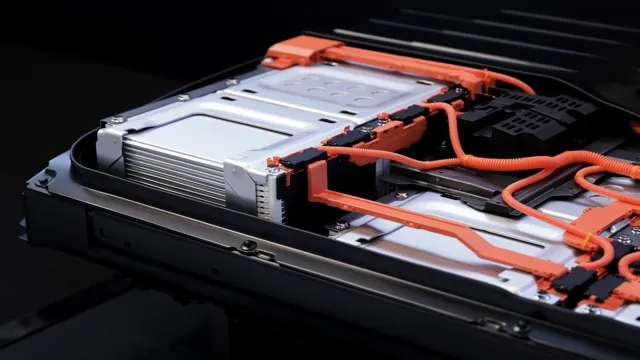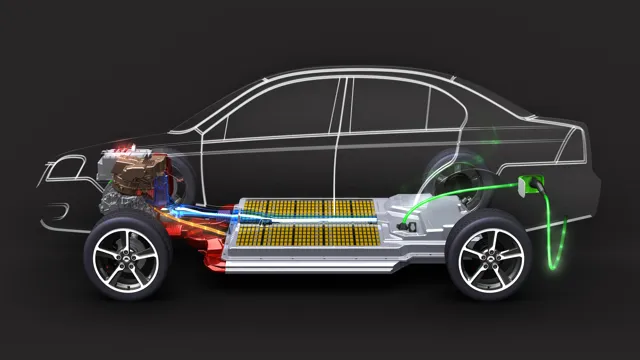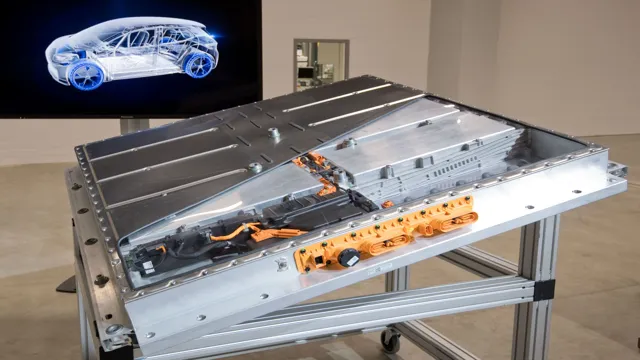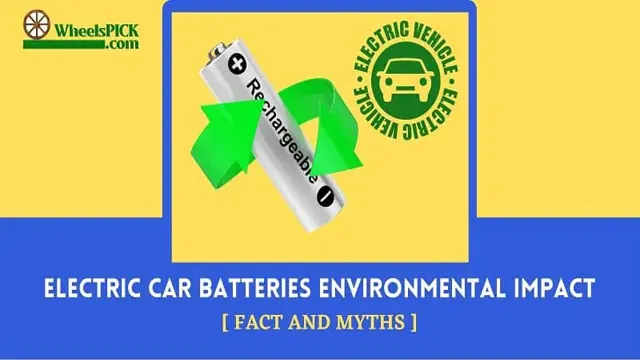Exploring the Environmental Impact of Electric Car Batteries: Are They Safe for our Planet?
Electric cars have become increasingly popular in recent years thanks to their environmental benefits. However, it’s important to consider the impact of their batteries on the environment. While electric car batteries don’t emit harmful gases like gas-powered cars, they do use a significant amount of resources to produce, and once they are no longer effective, they can pose a risk to the environment.
In this blog, we will explore the ways in which electric car batteries impact our planet and what we can do to mitigate any negative effects. So buckle up and let’s dive into the world of electric cars and their batteries!
Environmental Impact of Manufacturing Batteries
Electric car batteries may be a revolutionary solution for reducing carbon emissions, but their manufacturing process can have negative effects on the environment. The production of electric car batteries relies heavily on the extraction of minerals such as nickel, cobalt, and lithium, which often involves mining practices that cause air, water, and soil pollution. Additionally, the process of refining and processing these minerals requires large amounts of energy, which can be derived from non-renewable sources.
However, efforts are being made to improve the sustainability of battery manufacturing. For instance, some companies are exploring ways to recycle used batteries and reduce waste. Overall, while electric car batteries may not be entirely safe for the environment, they are still a better alternative than gas-powered cars.
Higher emissions during production process
The production process of batteries can have a significant impact on the environment. While batteries are often promoted as eco-friendly due to their ability to store renewable energy sources, the manufacturing process itself can lead to increased emissions. Manufacturing batteries requires the use of materials such as lithium, cobalt, and nickel, which are extracted through mining processes that can produce large amounts of waste and pollution.
Additionally, the production process itself involves the use of energy-intensive procedures and the release of greenhouse gases. It’s important to consider the full lifecycle of the battery, from inception to disposal, to understand the true impact that batteries have on the environment. As consumers and companies alike move towards adopting sustainable practices, it’s crucial to increase awareness of the environmental impact of battery manufacturing and find ways to reduce the emissions and waste involved.
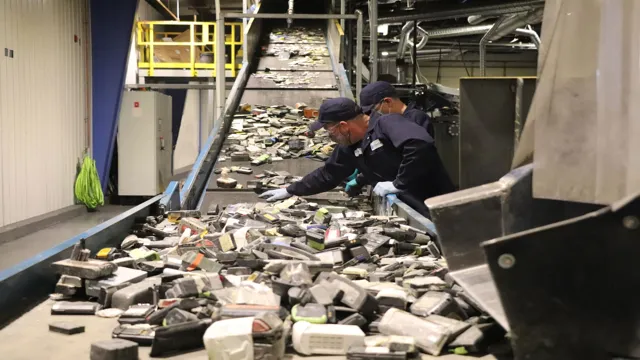
Disposal and recycling poses challenges
The production of batteries is rapidly increasing due to the surge in demand for devices that require them. While batteries have greatly improved the efficiency of these devices, their manufacturing process also has a significant environmental impact. The production and disposal of batteries release toxic chemicals and heavy metals such as lead, lithium, and cadmium into the environment, causing soil and water pollution.
Additionally, managing the disposal and recycling of batteries poses many challenges because some of the materials used in the batteries, such as lithium, are highly flammable and may cause fire hazards. This issue is compounded by the fact that battery disposal methods, such as landfills, may not be reliable given the potential risks of these materials. As such, it is essential to come up with environmentally-friendly ways to manufacture and dispose of batteries to mitigate their impact on our planet.
Sustainable alternatives, such as developing new battery chemistries that require less toxic materials and using more sustainable recycling methods, can help alleviate some of these challenges while ensuring that the growing demand for batteries does not come at the expense of the environment.
Electric Car Batteries and Carbon Emissions
Are electric car batteries safe for the environment? This is a question that often comes to mind when considering making the switch to an electric vehicle. While electric cars have been touted as a greener alternative to traditional gasoline vehicles, the production and disposal of their batteries have raised concerns about their environmental impact. The production of electric car batteries generates a significant amount of greenhouse gas emissions, and the extraction of the raw materials needed to make these batteries can have damaging effects on the environment.
However, it is important to note that electric car batteries have a much longer lifespan than traditional car batteries, and can be recycled or repurposed for use in other industries. Additionally, as renewable energy sources such as wind and solar continue to replace fossil fuels, the production of electric car batteries will become even cleaner over time. Overall, while electric car batteries are not without their environmental impact, they offer a promising and increasingly sustainable alternative to traditional gasoline vehicles.
Lower overall emissions compared to internal combustion engines
When it comes to lowering overall emissions, electric cars have a significant advantage over their gasoline-powered counterparts. One of the primary reasons for this is the batteries that power electric vehicles. Electric car batteries produce zero emissions while being charged, which means that the electricity used to power the car can come from renewable sources like wind or solar power.
Additionally, while electric car batteries are primarily made of materials like lithium-ion and cobalt, the manufacturing process for these batteries does produce some carbon emissions. However, when compared to the emissions produced during the extraction and refining of oil used to power internal combustion engines, the carbon dioxide emissions from battery production are significantly lower. This means that electric cars still have a lower carbon footprint overall, making them a more environmentally sustainable choice for drivers looking to reduce their impact on the planet.
Reduction in emissions in cities and densely populated areas
Electric Car Batteries One of the major contributors to carbon emissions in cities and densely populated areas are vehicles powered by fossil fuels. However, electric car batteries are quickly becoming a more popular alternative as they have the potential to significantly reduce carbon emissions. The use of electric car batteries results in fewer emissions and cleaner air for everyone, as they produce zero emissions during driving.
The batteries are also recyclable, reducing the environmental impact of vehicle production. While electric cars can still have a carbon footprint during their manufacturing process and their electricity source, many places offer incentives for using renewable energy to charge them. As more people shift towards electric cars, we have the potential to make a tangible difference in reducing emissions in cities, making them cleaner and more habitable for all residents.
Possible increase in emissions during battery manufacturing
When it comes to electric cars, one of the biggest selling points is their eco-friendliness. After all, they emit no pollutants while driving on the road. However, some people question whether or not the manufacturing of electric car batteries is actually environmentally responsible.
There is a possibility that the production of batteries could lead to an increase in carbon emissions. This is because the manufacturing process involves the use of materials and energy, such as lithium and electricity, which could lead to carbon emissions. However, it is important to note that the carbon footprint of electric car batteries is still much lower than that of traditional gasoline cars.
Additionally, research is being done to find more sustainable methods for battery production, which could further decrease the carbon footprint of electric cars. Overall, while there may be some emissions associated with battery production, the overall environmental impact of electric cars is still much smaller than that of gasoline cars.
Benefits of Electric Car Batteries for the Environment
The use of electric car batteries is safer for the environment than traditional gasoline cars. Electric car batteries do not emit harmful toxins like carbon dioxide, nitrogen oxides, or sulfur oxides, which contributes to the reduction of greenhouse gases. Furthermore, these batteries can be recycled, reducing waste materials that can be hazardous to the environment.
Electric car batteries can also promote the use of renewable energy sources because they can store excess energy from solar panels, and wind farms, which reduces reliance on fossil fuels. Although electric car batteries can be expensive, their long-term health and environmental benefits are worth it. So, are electric car batteries safe for the environment? Absolutely! Electric cars are the future of sustainable transportation and contribute to a cleaner and greener environment.
Reduced dependence on fossil fuels
Electric Car Batteries The benefits of using electric car batteries are numerous and significant for the environment. One major advantage is that electric cars don’t require gasoline or diesel fuel, which means they don’t emit harmful pollutants into the air, such as carbon monoxide and nitrogen oxides. This reduces our dependence on fossil fuels that are not only finite resources but also contribute to climate change.
In addition, electric car batteries can be charged using renewable energy sources like solar or wind power, making them even more environmentally friendly. Not to mention, the batteries themselves can also be recycled at the end of their useful life, reducing waste and further helping the planet. These benefits are just some of the reasons why electric cars powered by safe, reliable and efficient batteries should be encouraged as an alternative to traditional gas-powered vehicles.
Lower emissions can improve air quality
When it comes to improving air quality, lower emissions from vehicles can have a significant impact. Electric car batteries are one sustainable solution to lower emissions and reduce harmful pollutants in the air. Electric cars produce zero tailpipe emissions, meaning they don’t release harmful pollutants into the air.
Additionally, the batteries in electric cars can be used to store power generated from renewable sources, such as solar and wind, further reducing the environmental impact of driving. This means that not only do electric car batteries help reduce emissions, but they also contribute to a cleaner, healthier environment. By choosing to invest in electric vehicles, we can take a critical step toward reducing our carbon footprint and improving air quality for generations to come.
Conclusion: Electric Car Batteries and the Environment
So, are electric car batteries safe for the environment? The answer is yes…
and no. While they don’t emit harmful pollutants like traditional gasoline cars, their production and disposal can have negative environmental consequences. It’s really up to us as consumers and manufacturers to make sure that we minimize the harm and maximize the benefits of this exciting technology.
After all, we don’t want to recharge our electric cars with guilt.”
FAQs
What makes electric car batteries different from traditional gasoline car batteries?
Electric car batteries are rechargeable and contain no lead or acid, making them more environmentally friendly and safe for disposal.
How are electric car batteries disposed of when they are no longer usable?
Electric car batteries can be recycled, repurposed, or safely disposed of using specialized techniques to prevent any hazardous materials from contaminating the environment.
Is the production of electric car batteries more harmful to the environment than traditional car batteries?
While the production process for electric car batteries does require the mining of certain materials, the overall impact is still lower than traditional car batteries due to the reduced reliance on fossil fuels.
Do electric car batteries emit harmful chemicals or gases while in use?
No, electric car batteries do not produce harmful emissions while driving. However, the production of electricity used to charge the batteries can produce emissions depending on the source of the energy.
